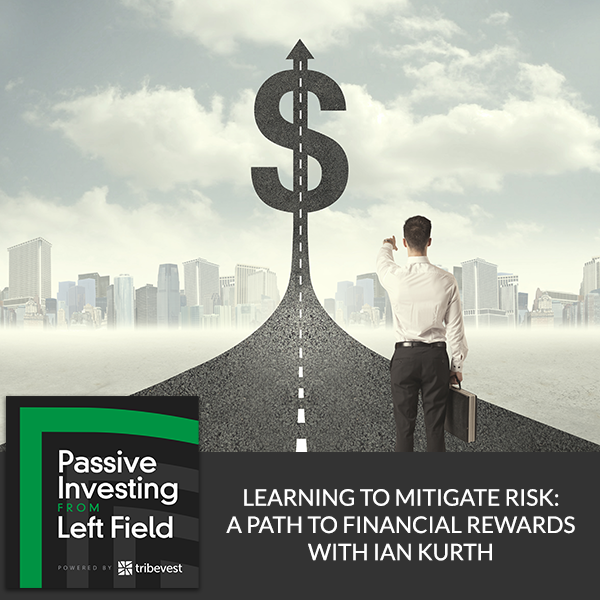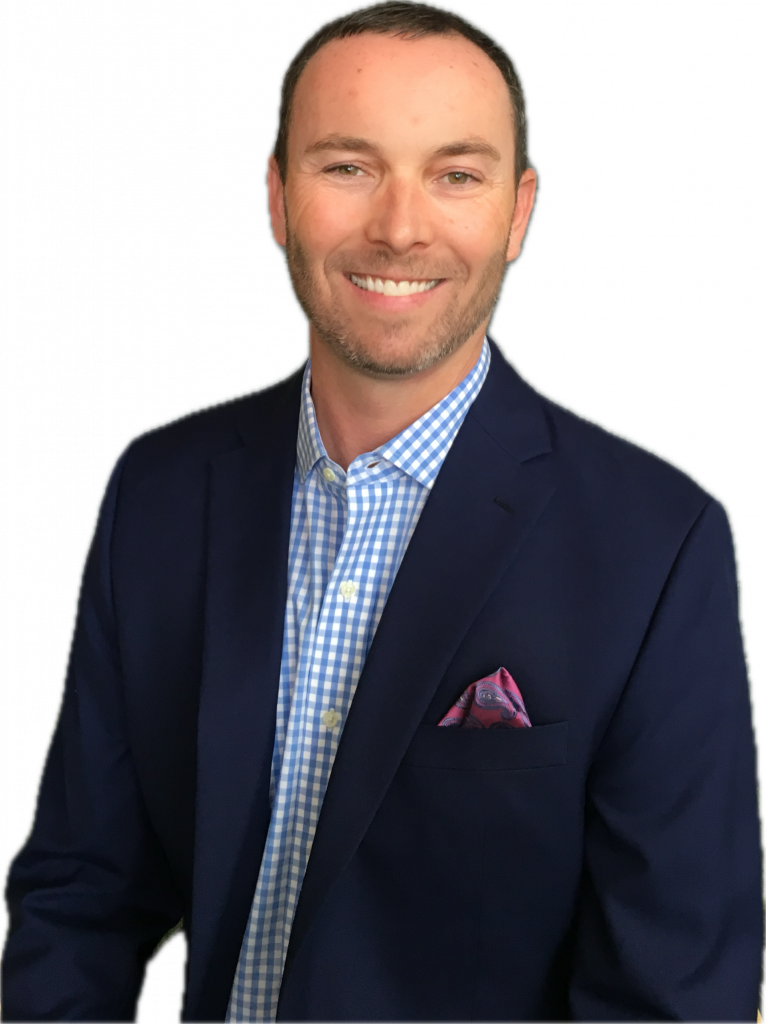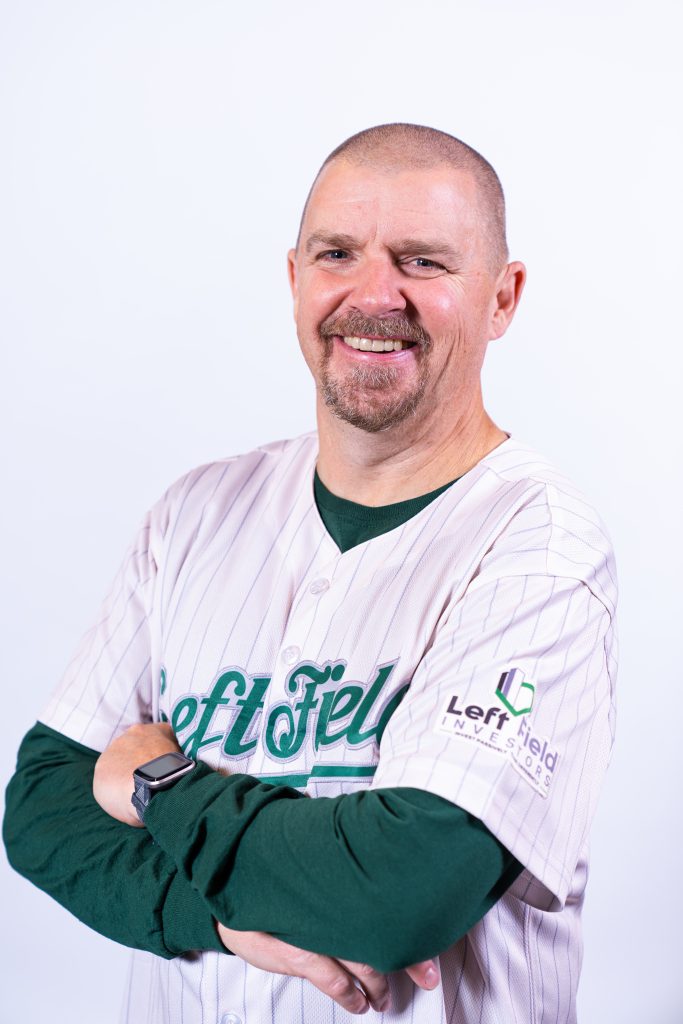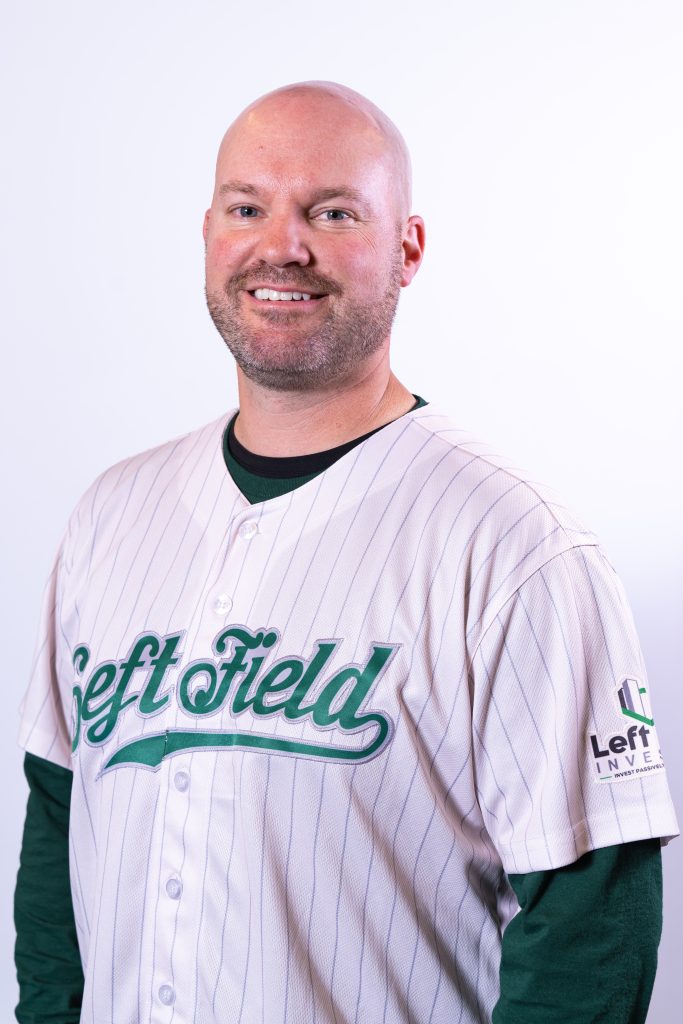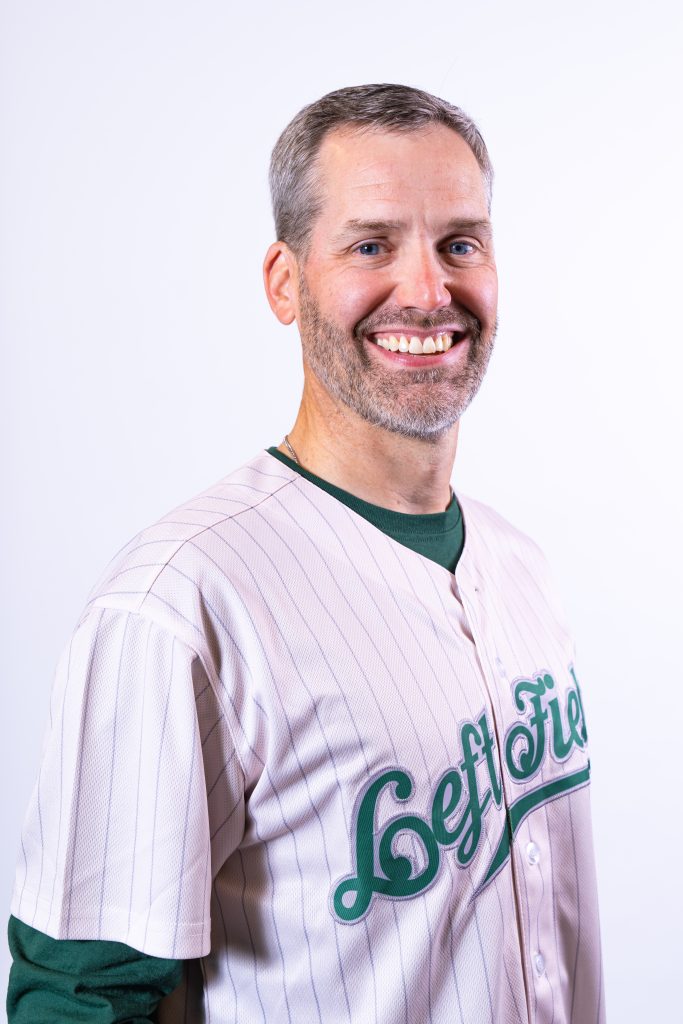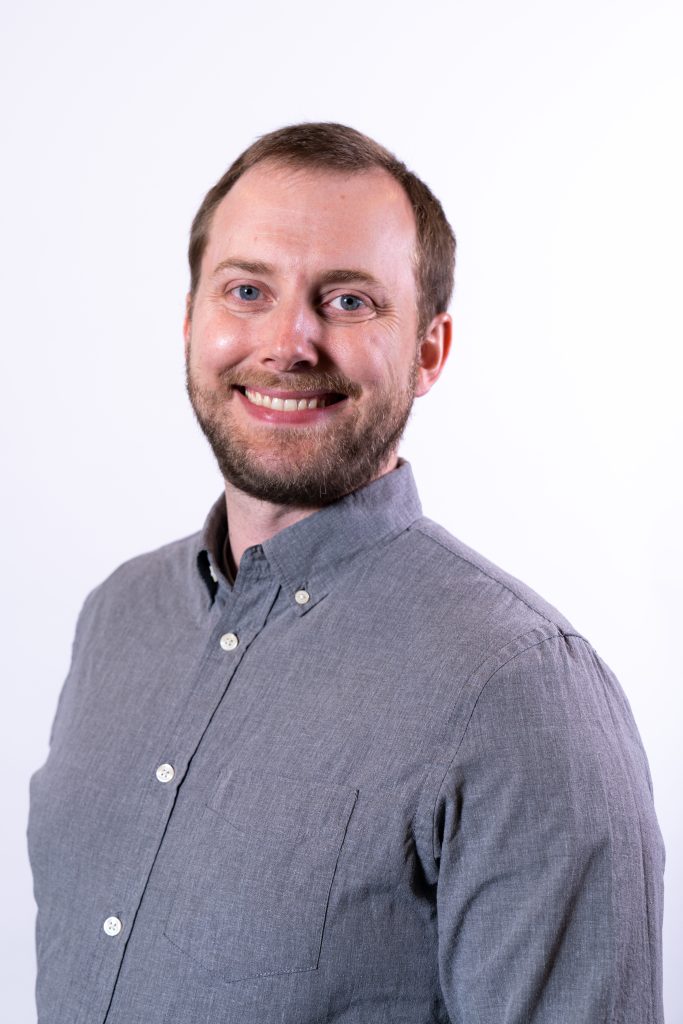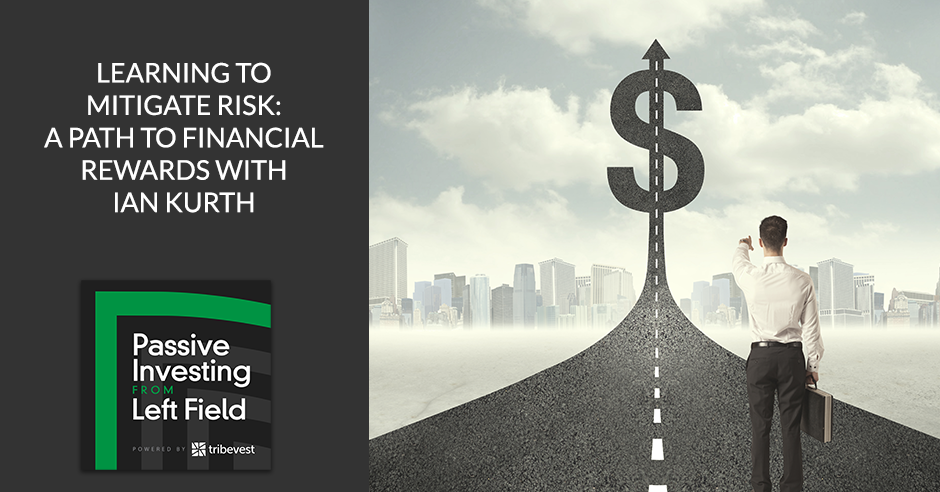
Risk is a big a part of investing. So how do you mitigate or minimize risk and maximize your reward? In this episode, that’s the conversation as physician and investor, Ian Kurth, shares his insights with Jim Pfeifer. Ian discusses how he got into investing, the different investment assets he has handled over the years and his take on the Bitcoin craze. Want to learn more about investing from a seasoned investor? Tune in as Ian and Jim share their experiences.
—
Listen to the podcast here:
Learning To Mitigate Risk: A Path To Financial Rewards With Ian Kurth
I’m pleased to have Dr. Ian Kurth with us. He is a private practice radiology group partner and a very experienced, active, and passive investor. He’s involved in over 50 private placements in all of the asset classes that we usually talk about, multifamily, mobile home parks, self-storage, short-term rentals, venture capital, oil, gas, and crypto, which everyone wants to talk about. He’s been a guest speaker at our monthly Left Fielder meetings. He was a speaker at our Infielder meeting and has been a great friend to Left Field Investors. I’m pleased to get him on the show finally. Ian, welcome to the show.
Thanks, Jim. It’s a pleasure to be here. Thank you for the invite. Thank you for all that you’ve done building the Left Field Investors platform. You’re doing a great service. I appreciate your efforts. Hopefully, we’ll have a great conversation here.

Thank you for that. The way we start out is I like to hear your journey. I know that you’re a doctor and a very experienced investor. How did you get into real estate? How did you get so focused on investing and creating wealth?
It’s a long and secure journey, as many people have experienced as well. I grew up in the Midwest with a pretty humble family. My father was a real estate investor. I observed his experiences in many different areas of real estate, everything from single families to multifamilies to development to the lending side. I was dragged into some of those actively managed projects and sweeping out. After the construction crews left, I was slinging mud, drywall and so forth and realized that I wasn’t very good at any of those endeavors.
It didn’t fit my personality. There was a seed planted at that point. I recognized that many people have real estate in their portfolios. Many people make and hold wealth in real estate. There was always a seed germinating, but I took a different path. I was the first in my family to go into medicine. I ended up sacrificing in my twenties, staring at white walls, trudging through various hospitals and medical facilities. I woke up out of that and joined a practice. I’ve been with the same practice since I left training.
As many physicians figure out at some point, through all of that specialty training and expertise that you develop, there’s not too much in the form of financial education. We generally enjoy a fairly healthy hourly wage or salary for better or worse, however you want to put it. We have to figure out how to invest that. Many people delegate that to others and fall into the financial planning and the index fund route. I certainly was a victim of that earlier in my journey.
Ultimately, I woke up to that. I had an awakening one April where I figured I had been nauseous on an annual basis enough. I wanted to solve the tax burden that I had been enduring for a number of years. Through that exploration, I found an alternative, real estate investments, many different mechanisms for asset protection and tax mitigation strategies. All of those wove together into what has evolved into my portfolio and education base.
Taxes got you there. A lot of people talk about the purple book, or I got in there as an accidental landlord. The tax is a big issue. When I was a financial advisor, we always said that the biggest eroder of your wealth is tax. It makes sense that that’s what got you into real estate. Did you start with active and then transition to passive, or have you always been doing a little bit of both?
That seed that germinated was developed in some of the dinner conversations that my dad held. I’d heard the term silent investor in the past. Many of the terms of real estate had been germinating for a while. I originally started my own real estate investing journey with a partnership with my father on an active investment, several properties that we still hold now. They’re doing very well for us. It’s an integral part of my portfolio. I realized that to do that well would require too much of my own time. There are better professionals who have expertise in various niches of real estate.
While I maintain a balance of the actively managed real estate, which I believe in for control and flexibility purposes, most of my portfolio is now on the passive side. In order to access that realm, I had to break out of the medical and conventional mindset. I had to begin to reach out to various networking groups, bolster my own education base, learn about these things, figure it out, and ultimately, I did. On the real estate side, it’s probably 2/3, 1/3 in terms of passive to active in my portfolio.
You had said it’s better to find professionals too. I’ve sold almost all of my active stuff because I don’t want to manage a property manager. I want an asset manager to handle that for me. I’m almost going all passive, but what you said is pretty interesting. You still have some active, and you said it was for control and flexibility. Can you talk to us about what you mean by control and flexibility? Why do you still want that active real estate in your portfolio?
When you engage in a passive partnership, it’s very important to recognize that you are seeding control of your capital, meaning that you are giving up control of your capital. You’re doing that for a purpose, and you believe that the operators have a better skillset, deal flow, operational expertise, and perhaps better access to financing. They can basically do the job better. You have to recognize that you’re getting on the bus and not driving the bus from your own perspective. The bus may stop or keep going.
It may not be convenient for you. You have to recognize that and balance that out in your own portfolio. You’re sacrificing that illiquidity and control for expectations of a better return, maintenance of attributes of real estate that everyone enjoys tax benefits and the like. In terms of its place in your overall portfolio, you need to recognize a loss of that control, and that can be mitigated in other ways.
You don’t necessarily have other active real estate entities. You can manage that by either risk mitigation on the front end with diligence on the operators and understanding the geographies, niches, and projects you’re involved in. You can also mitigate that by having a healthy dose of liquidity on the other side of your portfolio. There is a disposition event that’s not in your favor or convenient for you or sometimes a proforma changes due to market circumstances that might be out of your control. Case in point, Coronavirus, where distributions were stopped or expected timelines were extended. You can mitigate that with liquidity on the other side of your portfolio.
One good way to confirm that you understand the concept is to try and teach it to someone. If you can help somebody else out, you not only help them, but you also expose some biases you might hold or blind spots you might have.
We’ve talked a lot about this in our Infielders Forum when you’re talking about liquidity. You want to have enough liquidity for opportunities or when things go bad. What do you do with that liquidity? Where do you put it? Especially, everyone’s talking about inflation now. Whether that’s transitory, as they say, or if it’s permanent, keeping money in cash is going to cause you some problems. You’re going to be losing money. What do you do with that cash? Are there places that you can get a return? Where do you put it?
I don’t know that I always subscribed to the mantra that you need to have a return on all of your capital. Your capital needs to have a purpose, but it may not be a return. The purpose for me of that liquidity is insurance on life. Make sure that if something were to happen to your family or circumstances were to change, or the problem was to arise that money could solve, you could solve that. You weren’t outsmarted by chasing yield at the sacrifice of liquidity. That’s one thing.
The second thing is it’s okay to have a bit of a cash drag to sacrifice in the short term some potential yield for the opportunity to engage in other projects that might come along, and you do not have an opportunity cost of missing those. That’s the purpose of it. The purpose is to ensure against life and for an opportunity fund. You don’t necessarily always have to have a mathlete’s dream of a substantial yield on every single dollar that you have. That’s my perspective.
To your question, can you find yield in this environment? It’s pretty tough. You put your money in the bank and are not going to find anything there. You can do some high cash value insurance products that might help, municipal bonds stuff, digital currencies, but all of those carry some risk. You have to ask yourself, “What is the purpose of this capital? Am I okay with accepting the risk that’s associated with that marginal yield that you might gain on it?”
That’s well said that you don’t need yield on every dollar. I find myself and others in my community I’ve talked to chasing yield on everything because you don’t want that idle cash sitting there. Everything has to have a purpose. If your idle cash is sitting there for some of the purposes you talked about, insurance and other things, it makes sense. You can give up yield there. You’re giving up yield in other places when it’s an all-risk reward balance.
I want a backup. You were talking about active versus passive investments. This is a general question, but if it’s a similar asset, are you sacrificing returns when you go passive rather than active? That’s the thing most people typically think is if you’re active, you can get better returns. Do you find that’s true? Do you get similar returns from your passive stuff? If we’re looking at maybe single-family or multifamily residential, something like that?
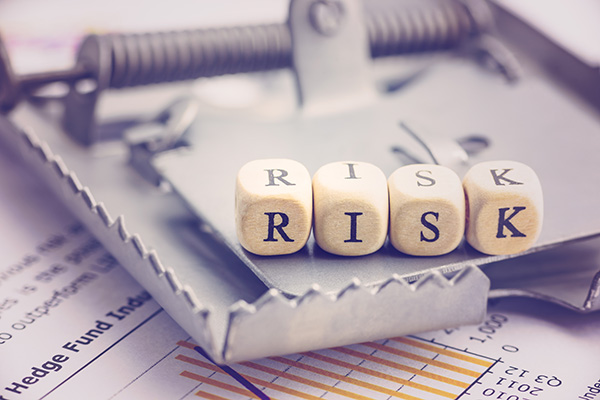
I can only speak for myself, but in my personal experience, in the near term, let’s call it anywhere from 1 to 5 years, I get beat by the pros. If I have something that I’m holding indefinitely for beyond 5 to 10, 15 years beyond, that’s the point where those returns might equilibrate for a variety of reasons. I might be okay with sacrificing some of that short-term yield for that control and the opportunity to extend my ownership of that if it suits what my intentions are at the time.
You also mentioned that some networking or groups had helped you out when you were getting into this. I know you’re very active in Buck Joffrey’s group, The Wealth Formula Group, as I am as well. Can you talk a little bit about the power of networking or community? If that’s helped you, how has it helped you become a better investor?
That is an important component of one’s own education, surrounding themselves with individuals who have a common goal, interests and with a mixture of people who have to full to several steps ahead in their own experience journey, as well as having people who are maybe behind you a little bit, that you can help out and teach. Having that diverse conversation is a good way.
I found to solidify the fundamentals from an educational standpoint and pass along the pearls that you may have stumbled across along that journey. One good way to confirm that you understand the concept is to try and teach it to someone. If you can help somebody else out, you not only help them, but you also perhaps expose some biases that you might hold or blind spots that you might have.
During the last several months with Left Field Investors, when I started the group, I thought I was going to be educating everybody. I’m ten times better at investing than I was then. I’ve learned all the stuff from everybody, not just helping beginners, but learning from people like you and other people who’ve been in it for a while and soaking up all that knowledge. The power of the network or the community, that’s what advances all of us in this stuff.
I want to talk about the favorite topic for everybody in this world, how do you find and vet a sponsor? I know you dig deep into some of this stuff. Can you give us some ideas of where you find them? I’ve stopped looking. I look to my network to refer people that they already know. Warm referrals are the way to go for me. Do you have any other ideas? Once you find them, how do you make sure they’re the right fit for you?
In the beginning, my approach was to do my best, knowing that I would be fallible in many ways, and to accept some of those errors in terms of choosing various syndicators or operators to partner with. I took the approach that I would go wide and sample many different ice creams if you will. Over the course of time, you have the opportunity to see how they perform, communicate, and whether they follow through. What’s their transparency? You get your own personal experience with that. At the same time, in parallel, you’re continuing to network. You’re getting validation from your own peers, who are working perhaps with similar operators or introducing you to new operators.
For various reasons, not only from my own experience but also from market conditions, I found myself going narrower and deeper. I have more comfort with several select operators, and I am consolidating with them more. I like their approach, performance, and where they sit in terms of my opinion of the market cycle, and I’m okay with that. Now, for me, it’s not the time to try all 36 flavors, if you will.
The more deals you’ve been exposed to, the more operators you’ve been in touch with, the easier it is to say no.
I have a similar approach because, in the first few years that I’m doing this, like you, I want to invest with everybody who qualifies right from my process and do the minimum with a lot of different people. Once I’m where you are, which is a few years ahead of me, and have had a few exits, seen a few more deals, and a little bit more experience, I’m going to pick in different asset classes, maybe a few sponsors of each and go bigger with them.
While you’re doing that, if you’re with a few sponsors because how do you diversify. I look at it like diversifying by market and asset class, but when I first jumped in, I was all in with one sponsor. I realized that’s probably not the right way to do it. How do you look at diversification within those three metrics and any other diversification you might do?
Those are great comments on approaches to diversification. Certainly, it’s appropriate to diversify if you’re comfortable amongst several select niches. Within those, geographical diversification is appropriate. Within that, you’re going to have potential operators. Within those operators, you’re obviously going to have different projects, and perhaps some of those projects are also going to have diversification on timelines, their business plan within those projects, and perhaps even on the debt or financing structure.
The timelines of that one might be three-year interest-only. Some of them might be 7, 15-year. That, to me, is the layered Swiss cheese where each one has its holes. If you layer it on top of each other, you have a block of cheese, and there are no holes in it. Whether that’s right or wrong, how I’ve approached the diversification.
You mentioned in the intro that I have quite a few interests. That’s a result. That’s the outcome of that approach. Certainly, it is not the easiest approach. A lot of people will pick one, go all in, and move on to the next project. At least at this point in my journey, that resonates most with my objectives, risk tolerance, and the outcomes I’m looking for.
For the sponsors that you’re mostly investing with now, you’ve had experience with them. Those are the few that you said you’re digging narrow and deep. Can you talk about maybe before that or now if you’re introduced to a new sponsor, even if it’s a recommendation from someone you already know, like, and trust? What’s the qualification process? What are you looking for? Maybe what’s something that if you see it, you’re like, “No, not moving any further if there is that?” I don’t know if I have that or not. How do you qualify as a new sponsor?
You hit on something there. The longer you’re in this, the more deals you’ve been exposed to, the more operators you’ve been in touch with, the easier it is to say, “No, I’m not interested. It doesn’t fit what I’m looking for.” It’s okay to allow those things to go on. It’s fine. It’s easy to get in a deal. Sometimes it’s difficult to get out of those. Having that type of perspective and awareness that there’s another deal right around the corner, it’s okay to pass. This isn’t the deal of a lifetime because the deal of a lifetime is around the corner. Having that perspective is useful. In order to vet a new sponsor, I certainly don’t have a desire nor feel an obligation to receive cold call solicitation.
A warm body introduction is almost a requirement now to have somebody else who has the type of experience I have with my own portfolio. They have themselves. They can say, “Yeah, I’ve been with them for X number of years. These are the deals I’ve been to. This is the type of people they are. I have met them. I understand their business plan and can explain it to you.” If all of those fits with what I’m were looking for, I would pursue it. I’m much more selective in acknowledging what objective I’m trying to solve in my own portfolio. If it doesn’t meet that at the time, I’m okay with saying no and letting it go.
One of the most valuable lessons to learn as an investor in this space is there are other syndicators out there, more deals coming, so you don’t have to feel like, “I got to jump in with the syndicator because they called me. They sent me a deal, so I have to invest in it.” It takes a while to figure that out. If you would’ve asked me in 2020, do I have all the best sponsors in my back pocket, I’m like, “Yeah, I got them all.”
Some of those I don’t even invest with anymore because I found people that I think are better. You have to realize there is a ton out there, and this isn’t putting all your money in as quickly as you can. It’s to be measured, careful, and do some due diligence. You mentioned the market cycle. What’s going to happen in the next five years?
I have no idea, and I say that with humility. The way that I’m approaching particularly illiquid investments now is one of the primary things I am aware of is the deal’s structure and timeline. I’m not interested in getting into a ten-year deal or even beyond that. Five-year deals even now are something that I pause on. We’re in unprecedented times. There’s a lot of things that, across the arc of history, we don’t have a ton to compare to. To me, it feels a little bit uncertain.
It’s not that I’m creating a bunker, going all cash, and having my guns and ammo and food reserves ready. It’s not that at all, but I am cognizant that we’ve been on an upcycle for a long time. There are some changes in the market that create little uncertainty in my own experience and study of history. I’m aware of not committing in an illiquid format for too long.

What does that mean when you’re thinking about asset classes, then? I’ve heard some other investors who’ve been doing this for a long time also say they’re looking for shorter-term investments. They’re doing maybe ATMs and things like that. What are those asset classes that you’re focusing on now that have a shorter timeframe affiliated with them?
I’m not so sure that it’s asset class-specific, but it might be the structure within the asset class. If you take something that’s fairly understandable for most people, the multifamily sector, many people would love to have a coupon-clipping type of investment, where you set it and forget it. Every month I’m going to get my 8% or whatever annualized.
Those are tough to come by. Who’s to say that 8% is going to be satisfactory in ten years? I don’t know. To find a deal like that right now is challenging. If you take that same asset class and compress that timeline and say, “What can I do in that asset class to take advantage of the market conditions, which are obscene right now in terms of the red spikes that are going on? How can I access that in a more conservative timeframe? How can I get my money back as quickly as possible, de-risk myself?”
“How can I seek out performers that are scheduling it out 2 to 5 years instead of 10 to 15 years?” Those are the types of things. I also want to point out that it’s not just what the performance says, but it’s the operator who can execute on that. Ultimately, that’s the key. They have to execute on it. They can tell you that’s what they’re going to do, but their track record needs to substantiate that, in my opinion.
Is there a difference then? I don’t have a W-2. I know you’re a doctor, so you’re not as worried, I would imagine, about cashflow as I am. When I first started investing in these things, I was going all-in on appreciation deals, forcing equity. I’m like, “I got to feed the kids and things like that, so I need cashflow.” Now I’m thinking if you want that short tail, you could do some of those quick turnaround forced-equity type things. If you do a few every year for three years, you’re starting to get the cashflow back. That could be an alternative cashflow strategy thinking in the short-term market.
You can structure it that way. I will hit pause and say, I hear many people looking for that cashflow to cover the cost of living. If we reflect back on our conversation with the liquidity part of that, you don’t necessarily have to have that cashflow on a scheduled basis if you have a liquidity chunk. You could have 5, 10 years of liquidity if you wanted to. Whatever strategy you have for cashflow doesn’t play out, you’re okay. That’s what I’m at this point in the cycle and certainly with people who are new to the space to recognize. I’m not being judgmental or dogmatic about it, but I recognize that things change.
We should all take a lesson from COVID that everybody is waiting for that check and that check stops. The rents stopped coming in. What do you do? If you were so smart into grabbing all of the potential yields, and now you can’t pay for your groceries, something is not right. Recognizing that potential and solving for it, if you can, prior to that. For me, that’s where that liquidity side comes into play.
When I get to the point where I am out of a W-2 existence and living off my investments, that is how I’m structuring myself so that I have X number of years of living expenses in reserve. If it gets rough, you certainly can tailor your living expenses. That is an extreme example, assuming that every single one of your investments stops, which we’re likely going to have bigger problems if that occurs in the economy. If you solve that, at least for myself, I will sleep better at night.
That’s a great way to look at it because every person is in a different situation. People want to get rid of the W2. That’s like the holy grail, but then once you get there, you got to think, “I have to have more cash reserves,” because COVID, whatever something else happens. You have to be thinking of all of that so that you’re protected. If you have a W-2, maybe you need less cash, but you also have to think of what happens to my W-2 and my investments. When things go bad, they don’t generally go bad in this one little small spot. It could affect you more broadly. That’s a great way to look at it.
We talked about how you vet new sponsors, but I’m also seeing new asset classes coming out, or maybe they’re not new, but one that I hadn’t heard of was a debt validation fund that came out. That was interesting. When you find a new asset class or hear about one, how do you vet it? How do you evaluate it to say, “Maybe this is something I want to get into?”
Blockchain technologies are really important. It is a big disruptor, and the technology doesn’t go backward. It goes forward.
If presented with something like that, I would need to understand, unpack, figure out what the sequence is on it and what the moving parts are so that I could better understand what the risk elements are, first of all. I would need to compare whether my expected yield can substantiate the risk that I would incur. Considering all that, I would need to compare it to something that I have validated, vetted, have confidence, and already have a systematic way to pursue. It would need to be pretty compelling in that comparison model for me to move forward with it. I don’t invest for excitement. I invest in producing results and being as confident that I have minimized risk accentuating potential rewards.
I don’t engage in things necessary to be braggadocious about it, have a stimulating conversation, or try to compel all the people to do that. I’m investing for a result. If that result carries too much risk, either on my part, because I don’t understand it or marketed as being non-correlated, but when you unpack it, it is correlated. That’s where I would say, “I’ll pause on this one.” It’s interesting. I’ll talk about it, but it doesn’t get my money.
That’s a great way to look at it and a great transition because you said you don’t invest for excitement, so naturally, the next thing I’m going to bring up is Bitcoin. I know that you have spent a lot of time researching, understanding. I know this isn’t real estate. We usually talk about mostly real estate on here. I know that you are knowledgeable about Bitcoin. I’m joking about the excitement part, but can you talk about what made you think, “I’m going to research and look into Bitcoin.” Once you did, what did you find out?
Bitcoin is an interesting concept. I started learning about the space in about 2017 and had no idea what it was, what its use case proposition was, how people valued it, what impact it might have, and how it was structured so that it is unique in terms of its structure. One of the ways that I forced myself to learn about it was to invest money in, follow, endure the volatility associated with it, and force myself into going down innumerable rabbit holes. I was trying to tally it up. I have spent hundreds of hours studying Bitcoin and various elements of it.
Each time, I’m looking for somebody who has an educated background and says that it won’t work. That’s what I’m seeking, frankly. I haven’t found it. I know there’s a lot of soundbites out there of fear, uncertainty, doubt, and so forth. Most of the time, when challenged on those opinions, the people making those are either parroting those comments or don’t have a deep level of understanding. That process, for me, has built a level of conviction that this is a once-in-a-lifetime transformation of value. It’s effectively the dematerialization and the digitization of value in an algorithmic way that is decentralizing. I’m throwing these adjectives out there, but they’re important.
Understanding each component of that is the key to understanding its value proposition and to see how this asset class, in my opinion, is here to stay. It seems risky to many people because their understanding is not to a level where they feel comfortable pursuing it. I feel like there is such an asymmetric play here where theoretically you can lose all your money, but that is the risk and the reward on the total addressable market. The upside to it, to me, is substantial. For a portion of my portfolio, I felt that at this point, Bitcoin’s evolution and its stage of adoption were right for our portfolio.
I certainly can’t summarize Bitcoin here in a short conversation, but if I can advocate one thing, it’s that people do explore it, deep dive on it, understand it to a point where you can honestly say to yourself, “I understand this and I choose not to.” If you can come to that conclusion, or I understand it and I seek to invest in, or I understand it and I seek not to, you have done yourself a favor at this point in the evolution of Bitcoin.
Why Bitcoin and not eat Ether or Dogecoin or whatever else? I know there are some that are real and some that are spoofs. What makes Bitcoin different than the others?
We share the same opinion that there’s Bitcoin and everything else. It’s not to say that everything else doesn’t have value. There are projects that will evolve, have technological advancement, and serve a purpose. Blockchain technologies are important and a big disruptor. Technology doesn’t go backward but goes forward. This technology will continue to adapt and find used cases.
Within the thousands of coins and projects and so forth in everything but Bitcoin, things will bubble up, and they may find their way and outperform from a price standpoint of Bitcoin. That’s okay, but to me, the value proposition of Bitcoin is that it is a decentralized storage of value that is algorithmic and immutable in its essence. It doesn’t care about what we or anybody else thinks of it. It does its thing. Every ten minutes, it’s a new block, TikTok, and it keeps going.
New forms of financial value converted into it that substantiates it. The way it’s set up with a proof of work, the node validators, the investors, software engineers, and all of those balance elements and the game theory associated with it, it is unique. It has tried to be mimicked. Certain projects are trying to duplicate, but the circumstances at which it evolved originally are incredibly difficult to repeat.

You said it’s a storage of value, and I get that. Are the other coins that might be successful less a storage of value or monetary and more like, “Here’s a specific project that this coin accomplishes?” Putting a value on assets inside a video game or something like that. I don’t want to dig too deep and get in the weeds here, but is that where Bitcoin stands apart because it’s the storage of value? If you find these other ones, and there’s a project that makes sense, it won’t necessarily be money or whatever we think of Bitcoin storage value-wise. It might be a project that works and uses the blockchain, and so that’s what makes it valuable.
One way to think of it is an egalitarian way to angel invest. Typically, in angel investments, you acknowledge that there’s a substantial risk involved. Your investment could go to zero, the moon if you find a unicorn, but most of those investments are illiquid. Whereas in this realm, it’s similar, and that there are centralized projects, meaning that there are a core group of development engineers who are trying to accomplish a goal. They are involving others and incorporating that capital towards that end. You have an opportunity to participate in a very early stage if you choose to, or somewhat of a more intermediate or potentially even a late-stage with your capital and have that capital remain liquid.
There are trends where all of these individual projects will be consolidated. There are even theories that most of these will eventually end up as a Level 2 or 3 on top of Bitcoin. All of that, I don’t know how to predict. I do know that the entire space is I feel it’s incredibly bullish in terms of its overall trajectory over the next several years. I recognize that I’m not a trader. I don’t go into this looking for short-term gains. When people ask me about Bitcoin, I do try to advocate for them to look into it. If they choose to participate and invest in Bitcoin, I try to set expectations where if you invest in it, be prepared to stay in it for at least four years.
Through that process, you are going to endure fantastic highs as the price goes up. You’re going to inoculate yourself with the lows because they will come. There will be substantial and violent downswings. If you look back four years from when you originally invested, over the course of its history, you can’t find a period where you weren’t up. Most of the time, it’s substantially up. It’s basically doubled in price value every year for eleven years. That will continue indefinitely. This is an opportunity for many people to front-run a lot of big money. It’s a unique opportunity in that sense.
At some point, though, there will be more institutional money. There will be insurance company investments and more sovereign nation investments. With the opportunity for the available digital land grant, most people can potentially afford one Bitcoin that may float away. At some point, that price will become very challenging to meet for that one digital Bitcoin. At some point in the future, you won’t be able to grab that opportunity. I see it as an opportunity for a digital land grab and a scarce asset that, in my opinion, will be here for the foreseeable future.
What do you think about the US government minting their own coins or somehow regulating Bitcoin in a way that takes some of the value away from it? Certainly, there’s some risk of government interference, but how do you see that when you’re investing in Bitcoin?
From what I understand right now, Bitcoin has been validated by a lot of the regulators for at least the US and many other countries. It has been deemed as property. It has a taxable behavior associated with other things. We have properties that have pros and cons and there’s no doubt that there is still a substantial risk. Most of that risk right now is regulatory risk in the environment that we live in. It could be taxed to oblivion. It could be extremely uncomfortable from a government standpoint to hold Bitcoin. There are all kinds of nuanced hammers or penalties that could be endured from a regulatory standpoint.
I don’t think that those are substantial enough to stop Bitcoin. It can certainly slow its adoption, but again, this is my opinion. It’s here to stay. At some point, there will be competitive forces that will mitigate any draconian actions like that. What I mean by that is if an environment is hostile to Bitcoin, it’s a competitive advantage for another environment to be accommodating, and that will force regulation across jurisdictions.
We’ve talked about real estate, cash, and Bitcoin. Not the final question, but the almost final question would be, how do we figure out how much to allocate to each? I know this is an impossible question, but your thoughts on how someone goes about trying to figure out, “How much do I put in each bucket? Are there other buckets I need to be putting something into?”
You can be your own worst enemy, but you can also be your best advocate and accomplish a lot of things without yourself getting in your way.
That question distilled down is a question of your own competence and confidence in particular areas. If somebody has no financial understanding and awareness of Bitcoin, I wouldn’t necessarily tell them to put anything substantial in it until they get to that particular level. There are people who are 100% Bitcoin. They have done the work. They’ve endured years of ups and downs. They exquisitely understand not only the native software but the game theory potential of it. That’s their decision to go 100% Bitcoin. I’m not there yet.
For me, I understand real estate, Bitcoin, cash, life insurance, and some other more esoteric investments in startups, private equity, and so forth. My waiting for my portfolio is based on my education and what particular need or used case for my portfolio I’m trying to solve. That’s how it’s evolved. If somebody were starting out, I would make sure that they fundamentally have a strong education in a particular area and recognize to the best of their ability what risks are associated with it and how they might solve for worst-case scenarios should those risks manifest?
That’s well said because it’s so individual. What you said is important is to focus on what you know or educate yourself, so you know something, and invest in those things. If you are starting out, you can’t do it all at once. You might throw a few dollars into Bitcoin or something like that, but you’re going to need to educate yourself on each individual thing, jump into that one, and then take the time to do the next. That makes sense to me.
That also is part of my own reluctance to explore the thousands of altcoins. There are a few that I’ll play with, but I don’t have the time or bandwidth to do the necessary diligence on those projects to invest in a meaningful way. Somebody else who has no interest in real estate, stocks and is 22 years old and has a Computer Science background can do some real damage if they focus on that stuff. Your own circumstances will dictate what do you think I’m involved in.
I’m mostly into Bitcoin and I have a few other little things here there because I hear somebody say something about it. I read up on it. I’m like, “I’ll give that a shot.” That’s like angel investing. It’s pure speculation. I put $500 turned into $5,000. I’m like, “I’m a hero,” but the next one, the $500, is gone. You said earlier, investing isn’t supposed to be exciting, or you shouldn’t make it exciting. For me, that’s true, but there’s the 5% of the fund money where I’m shooting for the moon. That’s where I get the excitement. The 95% is boring, trying to create some wealth for our family. I have 5% where I’m hoping to get that unicorn, get a 10X or 100X, and pat myself on the back.
I might be misquoting this, but I believe that if you had a portfolio of 99% cash, 1% Bitcoin over a five-year span, you would outperform the S&P. That’s pretty boring, sitting all in cash and having a little bit of crypto, but that’s not to say that’s what’s going to happen moving forward. It goes to say there are all kinds of different ways you can approach this.
This has been a fantastic conversation. I appreciate it. The last question I ask is, what’s a great podcast or two that you listened to, real estate or anything else?
I am a podcast junkie. I find that it’s a great medium for me to learn about different topics and people. It’s convenient for me with my own lifespan. I’ll give you a couple that probably you may not have had offered on this particular show. I listened to Jocko Podcast frequently. That’s a terrific study into human nature and leadership principles, and his story is very compelling. Two that I listened to pretty regularly now are We Study Billionaires. We listen to the Wednesday show on Bitcoin. My First Million is a pretty interesting spit-balling type of conversation about a couple of VC guys who had exited and are now trying to decide how to invest.
All In which is a podcast for billionaires who are venture capitalists as well. They have discussions on current events and investing topics. Those aren’t real estate-centric. They do touch on investing to a certain extent. Some of it is the mindset. Some of it is opening your awareness to the possibility that you can do pretty much anything if you want to. That type of mindset serves people well, particularly in the investing realm, to know that you can be your own worst enemy, but you can also be your best advocate and accomplish a lot of things without yourself getting in your way.
It’s funny that the Jocko one, someone else recommended that. It was the first time I’d heard of it. I had never heard of those last two you mentioned, so I’ll check those out. We Study Billionaires is a good one as well. Thank you for those. That’s fantastic. I wanted to pause there because typically, I ask how readers can get in touch with you, but when I’m talking to passive investors, sometimes they’re not interested in that, so I thought we’d skip that.
That’s fine. I don’t have anything to sell or promote.
Ian, it’s been great having you on the show. It was super informative. We appreciate it and hope to do it again sometime soon.
Jim, thanks again for the invite. This is a lot of fun. I appreciate again all that you do with Left Field Investors. Keep it up.
Thank you, sir.
Important Links:
About Ian Kurth
 Ian Kurth is a physician partner in a private radiology group practicing diagnostic and neuroradiology. Beyond his typical patient care responsibilities, Ian is also a business owner, consultant, and an experienced investor with a diverse portfolio that includes many passive real estate syndications. In his leisure time, Dr. Kurth enjoys spending time with his wife and four children, traveling, and competing in Ironman triathlons.
Ian Kurth is a physician partner in a private radiology group practicing diagnostic and neuroradiology. Beyond his typical patient care responsibilities, Ian is also a business owner, consultant, and an experienced investor with a diverse portfolio that includes many passive real estate syndications. In his leisure time, Dr. Kurth enjoys spending time with his wife and four children, traveling, and competing in Ironman triathlons.
Our sponsor, Tribevest provides the easiest way to form, fund, and manage your Investor Tribe with people you know, like, and trust. Tribevest is the Investor Tribe management platform of choice for Jim Pfeifer and the Left Field Investors’ Community.
Tribevest is a strategic partner and sponsor of Passive Investing from Left Field.

